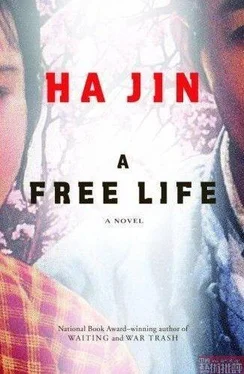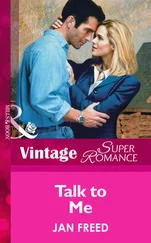The conference room at the community center was packed, some people standing along the walls. Nan was sitting on a folding chair close to the front, having arrived ten minutes early. Two men and one woman were seated at the table facing the audience. Since many of the attendees didn't know English, the discussion was to be conducted only in Chinese. After the moderator introduced the speakers, the older man, a historian wearing horn-rimmed glasses, harrumphed, then began to speak in a squeaky voice. He criticized the book, saying it merely echoed "the Boxers' sentiment and cheap jingoism." Also, its main points, mostly supported by wrong information and inaccurate statistics, were shaped to serve current politics in China and had nothing to do with real scholarship. While speaking, he grew more animated, his glasses flashing. He stressed that the United States had never robbed China like other foreign powers had, and that it was Japan and Russia that China should condemn and worry about. Anyone with some knowledge of modern history could see this plainly. In short, the book was superficial, unprofessional, irresponsible, and shouldn't be taken seriously. He went on to recommend several titles that could inform people better about the relationship between China and the United States. As he spoke, grumbles were rising from the audience.
Nan agreed with the speaker's views, but he didn't like the old man's jarring voice and supercilious manner, especially his use of his thick index finger to point at the listeners as if they were his students.
The second speaker was a younger man with large weary eyes, a political scientist at Georgia Tech. He believed the book was too emotional, but he could see two causes for the desperate emotions the authors manifested. First, the Chinese government had ruined its image with the Tiananmen tragedy, and people in the West had begun to view China as a totalitarian state; for this the Communist leaders had to be responsible. Second, the U.S. policy toward China had lacked consistency in recent years. That hurt the self-respect of the Chinese people. For example, in May 1995 the American government had allowed Denghui Li, the former president of Taiwan, to visit the United States and thus deviated from its one-China policy and accelerated the crisis over Taiwan Strait.
"Shut up!" a spindly man yelled, and he stood up in the back. "You're talking dog crap and trying to please the Nationalists from Taiwan who control this community. Why do you want to shoot down the authors of this book just because they're young and emotional? We Chinese must have our pride and must stand up to Americans. I've been here for two years. How much bitterness have I swallowed? I was a doctor back in Tianjin City, but here I'm a custodian wiping windows and toilets. Who can relate to me? Who will speak for me? Who can know how a Chinese actually feels here? Why do you defend Americans instead of your own compatriots?" The man broke out sobbing and couldn't speak anymore. He sat down and covered his face with both hands. Someone in the front howled with laughter.
For a moment silence fell on the room. Then people began jabbering, either condemning the U.S. government or denouncing the authors of the book. Nan turned around to look at that vociferous man in the back, who was still weeping. The moon-faced moderator waved to quiet the audience down and then let the woman on the panel, a Taiwanese essayist, speak.
The middle-aged writer moved the microphone closer and leaned forward a little. She said, "I want to cry. Such a vulgar, mindless book has become a best seller. This shows the deteriorating mental state the people on the mainland have sunk into. How could the authors use such obscene language to describe Taiwan? I didn't understand the word 'sichu,' so I looked it up in a dictionary. How dare they say Taiwan is China 's 'private parts' that no foreign power can touch! The authors were crass and foolish if not demented. They don't think of the Taiwanese as human beings. All they care about is the so-called Chinese nation, the great China. They made me want to puke! They went so far as to claim Taiwan was China 's testicles, grabbed by the United States now. How ignorant and shameless they are! In the postscript they even say New York 's highways are inferior to China 's highways, and that New York has no new architecture. You have all seen America and can form your own opinion. If you're not blind, you can judge for yourselves."
She became too emotional to continue. Then a lynx-eyed man, perhaps a visiting scholar, seized the microphone in the audience and shouted: "Compatriots and friends, to the vacillation of the U.S. foreign policy toward Taiwan we must say no!"
People applauded.
He boomed again, "To the Japanese anti-China activities we must say no!"
Again applause broke out.
"To the U.S. Congress's China-bashing we must say no!" More people clapped their hands.
"To American imperialism and hegemony we must say no!" Applause thundered again.
" To all those who are hostile to our Chinese nation we must say no!"
Some of the audience stood up applauding. Then the man spoke calmly as if clarifying his points. He told the audience, "Even as we say no, we must be rational and base our ideas and judgments on accurate information and facts. Otherwise we might make disastrous mistakes. While we blame others for being prejudiced and for double-dealing, we ought to prevent ourselves from getting too hotheaded." He was certain that the twenty-first century would belong to China, meaning that the country would grow into the number one world power, so the Chinese, he said, should be confident and mustn't follow American ways.
Nan was bewildered by this man's performance, wondering which side he was actually on. The man spoke like a seasoned official, manipulating the emotions of the audience, some of whom kept nodding approval.
Then a skinny woman in a coffee-colored woolen sweater took the microphone. She was wearing at her waist a small thermos made of stainless steel. Despite her new hairdo, Nan recognized her-Mei Hong. "I have to take issue with you notables on the panel," she said emphatically. "You say the authors are young, emotional, and ignorant. Do you know that being young is not necessarily being wrong? Napoleon started conquering Europe when he was a young man. You say they're too emotional. What can be accomplished without deep, sincere emotion? A few years ago I went to visit the Yuan Ming Park outside Beijing that was burned by the Eight-Power Allied Forces last century. Seeing those felled stone pillars and charred beams, I couldn't hold back my tears. My heart was aching and bleeding. How could I not be emotional? You say the authors are ignorant, but they plucked up courage to confront the American imperialists. Even if you have a great deal of knowledge and professional training, why haven't you done anything to expose the conspiracy against China? Why do you talk like running dogs employed by the U.S. government? Shame on you!"
A smattering of applause rippled across the audience. The three panelists looked astonished. The woman writer sighed, now shaking her head, now pinching the bridge of her nose.
Mei Hong continued, "The other day my daughter told me that a Korean boy in her class broke into tears because some students called him 'Chinese.' That made me remember that once a homeless bum had yelled 'Chinese' at me simply because I didn't respond to his panhandling. He didn't know my ethnicity for sure, but why did he call me that? And why did the Korean boy feel so humiliated by the word 'Chinese'? I did some research on this, and here, let me share my discovery with you." She pulled out a square of paper from her pants pocket, unfolded it, and went on to explain, "In English the suffix '-ese' suggests 'inferior, insignificant, weak, weird, and diminutive.' You all know what ' China ' means. It means 'hardened clay or dirt.' So combining the two parts together, 'Chinese' means 'tiny, petty, and odd stuff made of dirt or clay.' After looking up the verbal roots in The Oxford English Dictionary, I finally understood that 'Chinese' was a racial slur, originally used by the British imperialists to put down our people and break our spirit. Not only us, but also other races, such as Japanese and Vietnamese, as if we were all peewee peoples, lightweights. By comparison, the suffix '-an' designates people of 'superior' races, for example, Roman, American, and German. This discrepancy in naming different peoples means that racial prejudice is already coded in the English language. Germany produces sausages-why not call its people Sausagese? Italy is known for pizzas-why not call Italians Pizzese? England used to export woolen textiles-why not call the British Woolese? America yields a lot of corn-why not call the people here Cornese? Or the Swiss, Cheesese?" Many people hooted with laughter while Mei Hong looked around, her face taut and her chest heaving, as if she were a stern teacher in front of a noisy class.
Читать дальше












